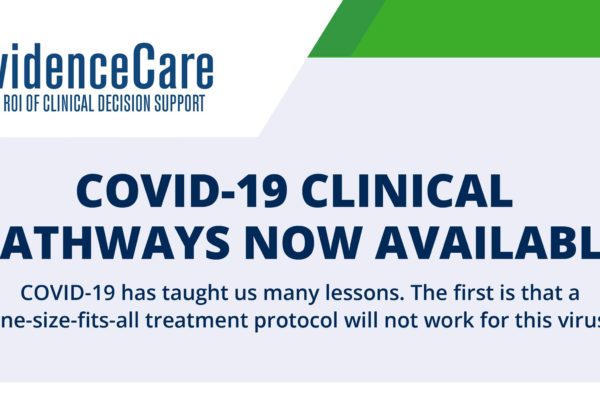New Collaborative is Leading the Charge to Improve Access to COVID-19 Clinical Decision Support
The US is closing in on a grim milestone for the COVID-19 pandemic as we move ever closer to 100,000 deaths. As of May 26th, Johns Hopkins reports 98,294 deaths with more than 1.6 million confirmed cases.[1] While the number of deaths continues to climb, the number of cases is leveling off, leading most states to begin the reopening process. But that process hasn’t gone smoothly. Reports over the Memorial Day weekend detail dozens of incidents of large gatherings with little or no social distancing.[2] Many experts are warning of either a spike in cases or even a second round of the virus this fall.[3] The point is: we must continue our diligent efforts to elevate the quality of care and outcomes for COVID-19 patients as it is likely to be with us for some time.
Such is the focus of a new collaborative put together earlier this year by EvidenceCare, an industry leader in providing clinical decision support technology. The group, known as the Collaborative Clinical Advisory Committee (CCAC), includes industry thought leaders and healthcare experts who have a common goal of improving data and access for COVID-19 clinical pathways.
In April, the CCAC held its first webinar, COVID-19: Treating to the Latest Evidence, A Collaborative Approach to Clinical Decision Support. In addition to Dr. Brian Fengler, chief executive officer at EvidenceCare, participants included Dr. Sandy Schneider, associate executive director for clinical affairs at the American College of Emergency Physicians (ACEP), Dr. Amer Aldeen, chief medical officer at US Acute Care Solutions, and Dr. Hasan Siddiqi, senior cardiovascular disease and research fellow at Brigham and Women’s Hospital/Harvard Medical School.
The CCAC is working to bring together health systems, medical societies, EHR vendors, content management companies, and others to share knowledge and research and to create a more integrated and consolidated strategy for treating COVID-19.
While the current focus is COVID-19, EvidenceCare’s ultimate vision is to create a new model of collaboration across all verticals to improve the health of our population and prepare for the next healthcare crisis. Following are topics discussed during the first webinar.
Making research accessible to all
Clinical trials by their very nature can take years to complete. Because most research is undertaken by a single organization or small groups, accessing information in a timely and meaningful way is extremely difficult. This complex, inefficient model of data-collection and dissemination does little to forestall the damage that pandemics can wreak. Front-line providers don’t have the time or resources to search through PDFs or online studies to find the information they urgently need at the bedside. Even when they do find information, there is no way to validate the data. This means each healthcare system is forced to create its own clinical protocols based on fragmented information and personal experience—not an ideal approach to fighting a global pandemic.
Creating a single source of truth
Indications of a potential global pandemic began showing up on the radar in a haphazard way across the globe. Information—and misinformation—trickled in at first. When the ACEP recognized there was an issue, it acted immediately. The organization reached out to its membership to share what they were seeing and then went to work creating an information hub, EngagED, where healthcare leaders and groups from around the world could share what they were experiencing. It became a resource to capture and share various approaches and clinical protocols for COVID-19.
At the same time the ACEP began efforts to collect and disseminate COVID-19 information, US Acute Care Solutions, a national leader in physician-owned emergency medicine, hospitalists, and observation services, had also made significant headway in collecting comprehensive research and creating a clinical management tool to help its clinicians treat COVID-19 patients.
Increasing access
Having COVID-19 resources such as those from ACEP and US Acute Care Solutions is of great benefit to providers. The question was how to get the information to other healthcare organizations across the country that don’t have the resources to pull the information together themselves. This was a gap identified early on by EvidenceCare and one of the primary roles of the CCAC. Because EvidenceCare already had an established clinical pathways portal, which included its own COVID-19 information, the ACEP and US Acute Care Solutions felt it was a great opportunity to combine all the information so it could get to a broader audience. This was accomplished in just two weeks. The pathways portal is now available to any clinician from any location from a mobile device. That means collective knowledge is always at the ready, no matter where a patient presents.
What we understand about the COVID-19 virus has been continuously evolving. This is especially true as it pertains to comorbidities. While many conditions like stroke or heart attack have standard care protocols, it has become evident that the virus is much more complex. We’ve learned that the same treatment will not work for every patient. It depends on each patient’s unique health condition. Such was the finding of Siddiqi and what led him to develop new staging protocols for COVID-19. Because of his research, providers now have more consistent descriptions of patient status and trajectory, which improves the triage process, enables a common language between providers, institutions and payers, and enables more effective stratification of patients for clinical trials. This new information will also be added to the EvidenceCare clinical pathways portal where it will be available to all.
Keeping information updated
Information is only as good as it is accurate. It’s not enough just to continuously push data into a database. It must be based on evidence. EvidenceCare’s COVID-19 pathway portal is updated daily in real time as new evidence becomes available. This is made possible through a collaboration with the ACEP, EBSCO/DynaMed, Bon Secours Mercy Health, and others who help curate the most up-to-date COVID-19 clinical pathways, making it immediately available to all stakeholders.
Facilitating shared learning
The CCAC is committed to expanding the group’s impact through education and ongoing webinars. Healthcare leaders and providers are invited to view the latest webinar, which was held Monday, June 1, 2020 at Noon CDT.
Speakers included: Sandy Schneider, MD, associate executive director for clinical affairs at the American College of Emergency Physicians (ACEP); and Nathan Mick, MD, medical director and associate chief for the Maine Medical Center Bramhall Emergency Department. EvidenceCare CEO Brian Fengler, MD, moderates the discussion.
To view the webinar recording, go to https://discover.evidence.care/webinar/covid-19-collaborative-approach-part-ii.
[1] https://coronavirus.jhu.edu/map.html
[2] https://www.businessinsider.com/party-goers-lake-ozarks-told-self-isolate-2-weeks-2020-5
[3] https://www.kcra.com/article/national-coronavirus-updates-may-26/32666430#









